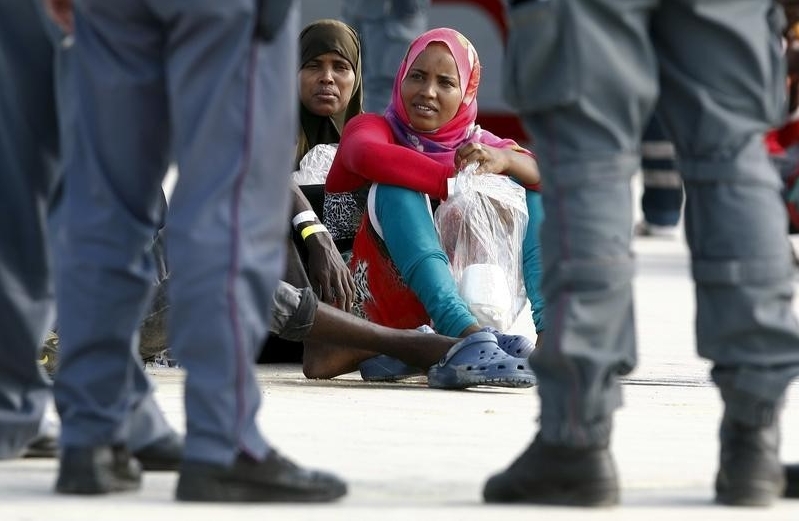
Italy will send 100 refugees to France and Spain next week as part of a European Union relocation plan aimed at easing the burden on border states, the country's top immigration official said on Friday.
Italy, with roughly 100,000 migrants living in immigration centers, is supposed to relocate 24,000 over two years as part of the voluntary plan, and about 16,000 more as part of an obligatory program, but so far fewer than 90 have been moved.
"Another 100 refugees will leave at the beginning of next week for France, Spain and maybe Sweden," Mario Morcone, the official in charge of implementing national immigration policy, told Reuters in an interview.
"So far, offers from other countries to take them has been limited," he said, noting that he hoped the plan's complicated bureaucratic procedures could be simplified.
In October, Italy sent 86 Eritrean refugees to Sweden and Finland. Nine states have volunteered to take in as many as 854 people from Italy or Greece, according to the European Commission, but Morcone said so far Italy had received a maximum of 350 offers.
Only Eritreans, Syrians and Iraqis, whose asylum requests have a high rate of acceptance, qualify to be relocated, according to the plan.
Italy is struggling to use the relocation plan drafted by the EU to overcome deep divisions in the 28-nation bloc about how to handle the continent's biggest immigration crisis since World War Two. About 140,000 migrants have entered Italy this year by boat from North Africa.
To be able to relocate refugees, Italy is being asked to set up immigration centers managed jointly with EU officials called "hotspots". The hotspots are intended to better identify migrants and keep those who do not qualify for asylum from moving to northern Europe.
Italy is due to have four "hotspots" operating by the end of November, and two more by the end of the year.
"We're still not fully operational," Morcone said. "It's in an experimental phase," he said. EU interior ministers meeting next month are likely to further discuss hotspots, he said.
EU partners have put pressure on Italy to set them up because in recent years the country failed to identify tens of thousands of migrants who landed on its shores, and most of them then continued their journeys to northern Europe.
Frontline countries, Italy and Greece, consider the flood of refugees and migrants a problem that the EU must handle as a bloc, while other countries - especially those on the eastern flank - balk at taking in migrants.
Greece, which has seen more than a half million arrivals so far this year, so far has relocated none of them. Greek Prime Minister Alexis Tsipras said on Friday he was ashamed to be part of an EU leadership unable to successfully manage the crisis.
(Editing by Philip Pullella and Louise Ireland)






